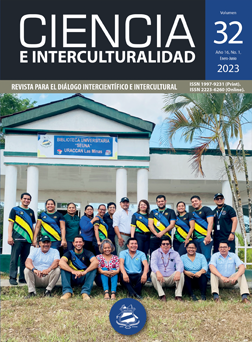Panorama of Mathematics Education with an intercultural gender perspective
DOI:
https://doi.org/10.5377/rci.v32i01.16239Keywords:
culture, inequality, stereotypes, gender, interculturality, MathematicsAbstract
A vision of the approach to gender conceptions in mathematics education is offered from the documentary critical inquiry, focused on understanding the approaches, theories, practices, and inquiries carried out around the general questions: What are the learning conditions for women in Mathematics? What are teachers' and students' attitudes and beliefs regarding the intercultural gender perspective? What knowledge exists concerning the learning of Mathematics from an intercultural gender perspective? Questioning that directed the performance of a State of the art on the global situation and that is the previous foundation for the doctoral thesis project: Mathematics Learning with an intercultural gender perspective at the University of the Autonomous Regions of the Nicaraguan Caribbean Coast (URACCAN) Bluefields and Nueva Guinea campuses.
The hermeneutic approach implemented to develop the State of the art makes the study qualitative. The content analysis and the phases of deepening the information allow us to affirm that the majority of the investigations that are carried out in mathematics education lie in the phenomena that arise during the processes of communication of mathematical knowledge from eminently cognitive perspectives, ignoring the influence of gender and culture in learning.
The few gender and mathematics studies focus on gaps such as access, academic performance, and standard test results. There is also the validity of masculinized language and a tendency to speak of women in general terms, leaving indigenous and Afro-descendant women invisible. Equality issues are relegated to mainstreaming.
Downloads
242
HTML (Español (España)) 88
xml (Español (España)) 104
Resumen.mp3 (Español (España)) 80
Abstract.mp3 (Español (España)) 93
pdf (Español (España)) 154
Downloads
Published
How to Cite
Issue
Section
License

This work is licensed under a Creative Commons Attribution-NonCommercial-NoDerivatives 4.0 International License.
Copyright © (URACCAN)

This journal is licensed under a Creative Commons Attribution-NonCommercial-NoDerivatives 4.0 International License.
This license allows others to download the works and share them with others, as long as their authorship is acknowledged, but they can not be changed in any way nor can they be used commercially.




